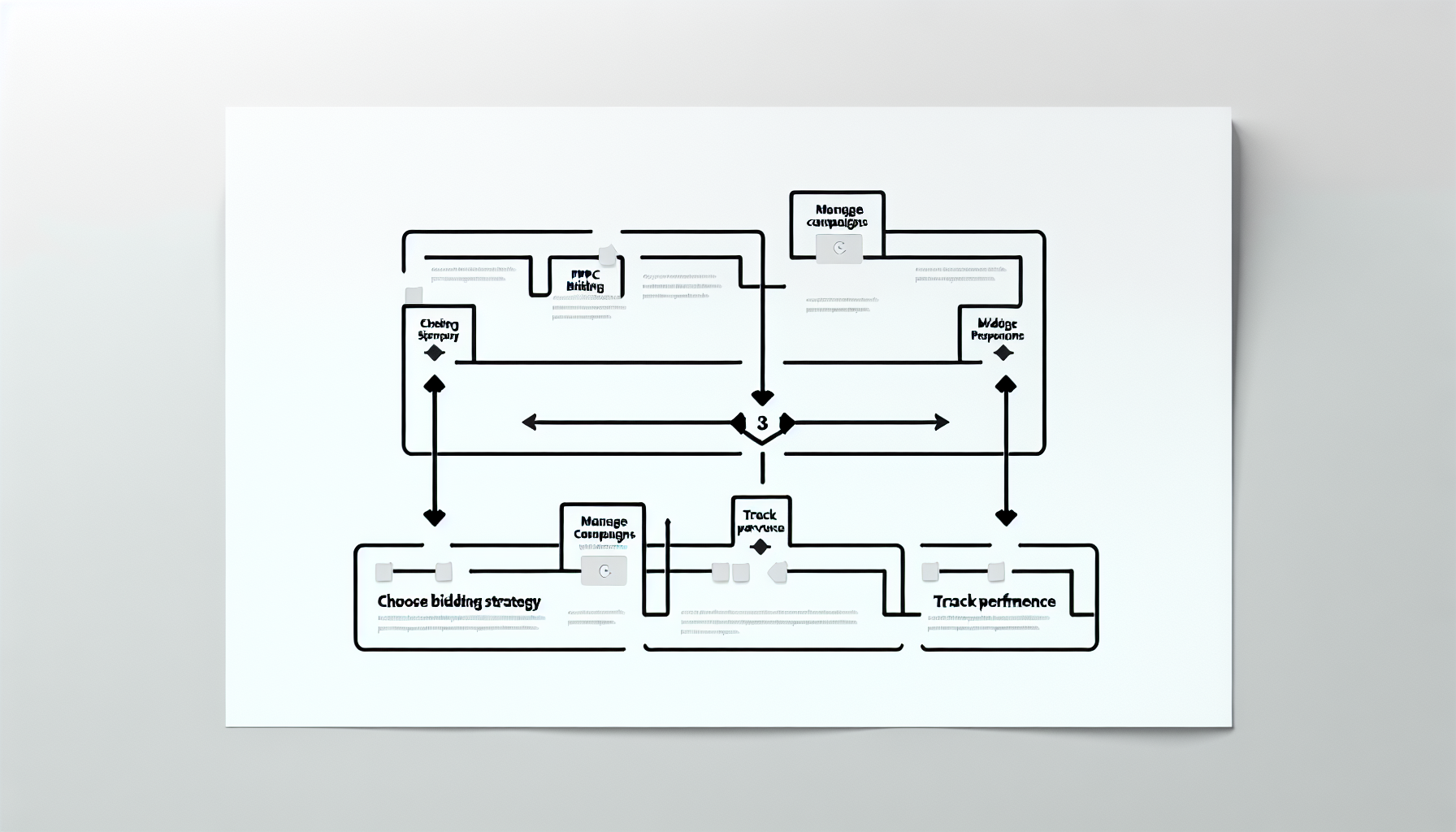In the dynamic world of digital marketing, navigating the intricacies of pay-per-click (PPC) advertising can feel overwhelming. With so many options and strategies, it's common for businesses to get lost in the shuffle. Imagine launching a new product, but your ads are buried beneath competitors in search results, leading to minimal visibility and wasted budget. The reality is that many businesses face severe challenges due to mismanaged PPC campaigns, often resulting in 30% of their ad spend being wasted. However, it doesn't have to be this way. By mastering the use of PPC software, you can unlock the potential to significantly improve your return on investment (ROI). By the end of this article, you'll be equipped with actionable insights to navigate PPC software confidently and effectively.

PPC software is a specialized tool designed to streamline and enhance the management of pay-per-click advertising campaigns. At its core, PPC software allows businesses to bid on specific keywords so that their ads appear when users search for those terms. This technology plays a crucial role in managing and optimizing ad campaigns, enabling marketers to adjust bids, track performance, and analyze results effectively. In recent years, the adoption of PPC software has surged, with the market projected to grow substantially, reflecting its increasing importance in digital marketing strategies.
Simply put, PPC software automates many aspects of ad management, making it easier for businesses to navigate the complexities of online advertising. For instance, think of PPC software as your personal marketing assistant, working tirelessly to ensure your ads are seen by the right audience at the right time. It takes away the manual effort involved in managing campaigns, allowing you to focus on crafting compelling ad content and strategizing for growth.
One of the standout features of PPC software is its ability to optimize bidding strategies in real-time. This means that as competition fluctuates or ad performance data is gathered, the software can automatically adjust your bids, ensuring that your ads stay competitive without overspending. Additionally, PPC software provides in-depth analytics and reporting, enabling businesses to make data-driven decisions that enhance campaign performance and ROI.
Effective PPC management is not just about spending money on ads; it’s about maximizing the returns on that investment. According to Google, businesses earn an average of $2 for every $1 spent on PPC, illustrating its potential for profitability. Properly managed PPC campaigns can increase traffic by up to 200%, leading to substantial revenue growth. A well-tuned PPC strategy can drastically enhance your overall marketing efforts, ultimately driving sales and customer engagement.
Consider a growing SaaS company that decided to optimize its PPC campaigns. By conducting thorough keyword research and leveraging automation features within its chosen PPC management, the company saw a 300% increase in website traffic and a dramatic rise in lead conversions. This case exemplifies how effective PPC management can directly correlate to increased revenue. As more businesses invest in PPC, understanding its impact on tangible business outcomes becomes crucial.
Statistics reveal the effectiveness of PPC advertising. In 2023, it was reported that optimized PPC campaigns yield a conversion rate nearing 10%, demonstrating how targeted ads can capture more leads. Understanding the statistics surrounding PPC can empower marketers to shape their strategies. As you incorporate PPC into your marketing mix, remember that the right tools can streamline this process and deliver impressive results. Understanding how your PPC efforts fit into your overall strategy is crucial; implementing marketing attribution tools can significantly enhance this understanding.

PPC software operates through a series of steps designed to ensure that your ads are effectively placed and managed. The core mechanics include choosing bidding strategies, managing campaigns, tracking performance, and generating comprehensive reports. Let's break down these components to understand how they contribute to the success of your PPC efforts.
When it comes to PPC, choosing the right bidding strategy can make or break your campaign. There are two primary approaches: manual bidding and automated bidding. Manual bidding allows for precise control over individual keyword bids, giving marketers the flexibility to adjust based on performance. However, this can be time-consuming. On the other hand, automated bidding leverages algorithms to adjust bids in real-time based on competition and performance metrics. For many businesses, automated bidding presents a more efficient option that maximizes ROI while minimizing the workload.
Creating and optimizing PPC campaigns requires a structured approach. Start by segmenting your campaigns based on specific themes or goals, which aids in better targeting. For instance, an e-commerce store might create separate campaigns for seasonal promotions and clearance sales. This segmentation allows for tailored messaging and ad delivery, leading to improved click-through rates (CTR) and conversions. Remember, effective campaign management is key to achieving your advertising goals.
Monitoring key metrics is essential for assessing the success of your PPC campaigns. Common metrics to track include CTR, cost-per-click (CPC), and conversion rates. For instance, a high CTR indicates that your ads are resonating with your audience, while low conversion rates may suggest issues with the landing page or ad relevance. By regularly assessing performance data, you can make informed adjustments to improve your campaigns. Understanding how to interpret data effectively can lead to significant improvements over time.
Detailed reporting is crucial for effective decision-making in PPC advertising. Regular reports help marketers identify trends and areas for improvement. For example, monthly performance reports can highlight which ads are performing well and which require adjustments. By analyzing these reports, marketers can develop strategies to enhance future campaigns, leading to continuous improvement. Dashboards can display performance metrics at a glance, simplifying the data analysis process and enabling quick decisions for campaign optimization.

Understanding the key components of PPC software can greatly enhance your advertising efforts. These components include keyword research tools, ad creation tools, budget management features, and analytics dashboards. Let's delve into each of these elements to see how they contribute to successful PPC campaigns.
Keyword research is the backbone of any successful PPC campaign. The right keywords can make all the difference in ad visibility and performance. PPC software typically includes robust keyword research tools that help identify high-value keywords and assess competition. For instance, using tools like Google Keyword Planner allows marketers to find keywords with the right balance of search volume and competition, which can lead to more effective ad placements and better ROI.
Creating compelling ads is essential for capturing your audience's attention. Effective PPC software provides ad creation tools that simplify the process of building engaging ads. Best practices for ad creation include using strong calls to action (CTAs) and ensuring that the ad copy aligns with the targeted keywords. For example, an ad featuring a clear and enticing CTA can significantly improve engagement rates, driving more clicks to your site.
Budget management is a critical aspect of PPC success. PPC software often includes features that allow businesses to set daily budgets and track spending in real-time. By establishing strict budget limits, marketers can prevent overspending and ensure that their ad campaigns remain cost-effective. A well-managed budget can help maximize the return on investment while allowing for flexibility in adjusting bids based on performance.
Analytics dashboards provide real-time insights into campaign performance, making it easier for marketers to make informed decisions. These dashboards display key metrics, allowing businesses to assess the effectiveness of their PPC campaigns quickly. The power of real-time analytics cannot be overstated, as immediate insights can lead to quick adjustments that improve performance. For deeper insights into your marketing efforts, explore a marketing performance software.
Even with the best PPC software, businesses can still fall into common pitfalls that hinder campaign success. By being aware of these frequent errors, you can take proactive measures to avoid them and optimize your advertising efforts.
One of the most significant mistakes businesses make is neglecting thorough keyword research. Failing to conduct proper keyword research can lead to missed opportunities in ad visibility. For example, not utilizing negative keywords can waste ad spend by triggering ads for irrelevant searches. Always prioritize a well-researched keyword strategy to ensure your ads are reaching the right audience.
Analytics play a crucial role in informing future campaigns. Many marketers fail to analyze performance data effectively, leading to missed opportunities for optimization. For instance, if a campaign is not adjusted based on CTR feedback, it can lead to stagnant performance over time. Utilize analytics to identify trends and make informed decisions that enhance your campaigns.
Inconsistent budgeting can pose serious risks to PPC success. Fluctuating budgets without a strategic plan can lead to lost visibility and missed opportunities. For example, a sudden budget drop can diminish ad placements, reducing overall reach. Establishing a clear budgeting strategy is essential for maintaining campaign effectiveness and achieving desired outcomes.
To maximize the effectiveness of your PPC software, consider implementing the following best practices. These strategies will help you stay competitive and optimize your ad campaigns for success.
Conducting regular audits of your PPC campaigns is vital for uncovering inefficiencies. By reviewing your campaigns quarterly, you can identify underperforming keywords and make necessary adjustments. Auditing helps ensure that your PPC strategy remains aligned with your business goals and market changes. Commit to regular campaign reviews to maintain optimal performance.
A/B testing is an invaluable tool for optimizing ad performance. By testing different ad creatives, headlines, or CTAs, you can determine which elements resonate best with your audience. For example, testing two variations of an ad can lead to increased CTR and overall campaign success. Use A/B testing as a regular part of your PPC strategy to foster continuous improvement.
Automation can significantly enhance the efficiency of PPC management. Many PPC software solutions offer automated bidding and performance adjustments, saving marketers time and effort. For instance, automated bidding can maximize ROI without requiring constant oversight. Embracing automation allows you to focus on strategic planning while optimizing your campaigns effectively.
Picture a company that leveraged automation in their PPC strategy. They set up automated bidding strategies based on performance metrics, which resulted in a 50% increase in ROI without the need for daily manual adjustments. This strategy not only saved time but also allowed for more robust data analysis that informed future decisions.
Understanding when to utilize PPC software is essential for maximizing its effectiveness. Several scenarios illustrate how PPC can significantly impact business outcomes.
Launching a new product is an ideal time to leverage PPC advertising. For example, a tech company introduced a new gadget and saw a 300% increase in traffic during its launch due to targeted PPC campaigns. By using PPC software to manage their ads, they successfully generated buzz and interest, leading to higher sales.
Seasonal trends can also be capitalized on through PPC advertising. Retailers often ramp up PPC efforts during holidays, which can result in increased sales. By aligning your PPC campaigns with seasonal opportunities, you can reach customers when they are most likely to engage and make purchases. Consider implementing targeted ads that highlight seasonal promotions to drive traffic and sales.
In saturated markets, standing out can be challenging. PPC software can help businesses differentiate themselves through targeted ads. For example, a niche market player might use PPC strategies to capture a unique customer segment, allowing them to thrive in a competitive landscape. Utilizing PPC as a tool to carve out a competitive edge can provide significant advantages.
PPC software is a versatile tool that can benefit various audience segments, from small businesses to large marketing agencies. Here’s how different types of businesses can leverage it.
Small businesses often face budget constraints, but PPC advertising can still be accessible and effective. With strategic PPC efforts, these businesses can achieve significant visibility without overspending. A small bakery, for example, increased foot traffic by 150% after implementing a local PPC campaign, demonstrating that PPC can level the playing field for smaller players.
For e-commerce businesses, PPC is a vital tool for driving online sales. By implementing targeted ads, these stores can reach potential customers actively searching for their products. A recent report found that 70% of online sales for e-commerce stores came directly from PPC efforts, showcasing the importance of this marketing strategy.
Marketing agencies can significantly benefit from using PPC software to manage multiple client accounts efficiently. With specialized PPC tools, agencies can streamline reporting and campaign management across various clients. For agencies looking to enhance their offerings, specialized PPC solutions can make a significant impact, allowing them to deliver better results for their clients.
Now you understand why PPC software is a crucial tool for driving successful digital marketing campaigns. By harnessing the power of PPC, businesses can optimize their ad spend and achieve impressive returns on their investments. With actionable insights from this guide, you can start implementing PPC strategies that drive growth and success in your business. The best part? You can start taking advantage of these powerful insights today. If you’re looking for a better way to manage your PPC campaigns and maximize your ROI, consider exploring automated solutions.
Learn how Cometly can help you pinpoint channels driving revenue.
.svg)
Network with the top performance marketers in the industry